The fact that many Vietnamese universities are continuously recognized in international rankings not only reflects the improving academic capacity, but also shows the effectiveness of the autonomy and integration process going into depth.
In that general picture, Van Lang is a typical case, representing the efforts of institutional innovation, digital transformation and business connection, contributing to realizing the major policies of the Party and State on sustainable education development.
In November 2025, the 2026 Asian University Rankings announced by Quacquarelli Symonds (QS) marked a special milestone for Vietnamese higher education: Van Lang University was ranked 251st in the region, 199th in academic reputation, top 5 Vietnamese universities, and in the group of 1001-1200 leading universities in the world .

Van Lang University is ranked 251st in Asia, top 5 universities in Vietnam according to QS Asia 2026 - a testament to its efforts in autonomy and integration. (Photo: Van Lang University Website)
Behind these numbers are not only the efforts of a university, but also the results of a comprehensive institutional transformation process, where the major policies of the Party and State on "fundamental and comprehensive innovation of education and training" have been and are being put into practice, creating new momentum for the Vietnamese higher education system to integrate, develop sustainably and affirm its capacity on the regional knowledge map.
Educational innovation, from policy to practical movement
Resolution 29-NQ/TW (2013) of the Party Central Committee opened a turning point in Vietnam's educational thinking, aiming at comprehensively developing learners' capacity and qualities. By 2025, Resolution 71-NQ/TW inherits that spirit, emphasizing three key breakthroughs: perfecting institutions, promoting university autonomy and international integration associated with digital transformation.
From an orientational policy, up to now, university autonomy has become an operating principle, creating conditions for educational institutions to be proactive in finance, personnel, and programs, while at the same time being responsible for quality and reputation.
In that context, many Vietnamese universities, especially private ones, have gradually asserted their position. Van Lang University is one of the typical examples, clearly reflecting the spirit of “autonomy with responsibility, integration with quality” that the State is encouraging and orienting for development.
Autonomy and integration, the path to policy realization
“University autonomy” was once understood primarily in terms of finance, but through the implementation of Resolution 71, this concept has expanded to include academics and administration, helping schools proactively plan strategies while taking responsibility for quality and social impact. Van Lang University is one of the units that has implemented this spirit early and consistently.
In that context, this model has become a typical example of the spirit of “autonomy associated with responsibility” that the new policies of the State are aiming for. From the orientation of applied training, the school is developing towards a university that focuses on social impact - where research, teaching and cooperation are closely linked with businesses and the sustainable development needs of the community.
Instead of expanding by quantity, the school chooses to raise academic standards by data and results, clearly demonstrated in its research strategy, international publications and academic cooperation. This approach is in line with the spirit of Resolutions 29 and 71, emphasizing innovation, self-responsibility and substantial quality development.
According to the QS Asia 2026 rankings announced by Quacquarelli Symonds (UK), Van Lang University is in the group of 251-300 leading universities in Asia, ranking 199th in "Academic Reputation" - an index reflecting the assessment of the regional research community.
Previously, according to Times Higher Education's THE Impact Rankings 2025, Van Lang was in the group of 601-800 world universities on sustainable development, demonstrating efforts to link training and research with the United Nations' Sustainable Development Goals (SDGs). These indicators not only honor a school, but also show that the autonomy policy is taking effect, when Vietnamese educational institutions can compete equally with quality and publicly with data.
Vietnamese education on the journey of international integration
Along with autonomy, international integration is one of the major pillars of the university education development policy. At Van Lang, the internationalization strategy does not stop at training cooperation, but extends to research networks, semester exchanges, cross-national internships and building a multicultural learning environment right in Vietnam. Vietnamese and international students study together, create together, and participate in programs such as Speak Up for Van Lang, activities that are not only experiential but also demonstrate the spirit of an open and multidimensional education.
The reality at Van Lang University shows that the process of innovation and business cooperation is creating many practical experiences for learners. According to Tuoi Tre Newspaper (December 2024), more than 400 Van Lang students have participated in the program "Learning at the Tuoi Tre Newspaper office", the first formal practice model between a private university and a central press agency, helping students work as real reporters, learning how to verify and process information in a professional environment.

The signing ceremony of the training cooperation agreement between Van Lang University and Tuoi Tre Newspaper - the model of "studying at the editorial office" helps students experience practical work. (Photo: Van Lang University Website)
Many lecturers and students also participate in innovation projects with businesses and professional associations such as VNPR (Vietnam Public Relations Association), thereby enhancing their application capacity, critical thinking and professional skills. These experiences are proof that transformation is only sustainable when policies, people and technology are harmoniously combined.
In particular, the fact that Van Lang University was honored by Microsoft as “Asia’s Typical Digital School” and voted by HR Asia-Human Resources Asia Magazine (the region’s leading prestigious human resources magazine) as “Asia’s Best Work Environment” in 2025 is a testament to how a Vietnamese private school can apply digital transformation and build a humane environment, in line with the direction that the State is promoting: developing digital education, improving staff capacity and putting people at the center of the innovation process.
However, along with these advances are many challenges that Vietnamese higher education needs to overcome. Competition in training quality, international publications and talent attraction is increasingly fierce; in particular, private schools must balance academic development and financial sustainability.
Some institutional barriers include the complicated and lengthy approval process for new programs; and frequently changing regulations on enrollment and accreditation, making it difficult to proactively adjust the curriculum to meet social and business needs.
According to an internal survey at Van Lang University, many students said that the innovative programs help them access more multidimensional knowledge, but they still have difficulty adapting to new requirements for critical thinking and digital skills. Some lecturers shared that the process of autonomy and innovation requires them to invest more time and effort to update teaching methods, especially when applying project-based learning models or integrating technology. These are the inherent challenges that the process of integration and autonomy must face.
Rating - real quality mirror
In the system of more than 240 higher education institutions in Vietnam, the fact that a private university has entered the group of 251 leading institutions in Asia is the result of a consistent process of innovation, linking training with accreditation and academic proof. This is not only the achievement of a single school, but also reflects the general direction of Vietnamese education in considering “ranking” as a tool for self-reflection, self-adjustment and quality improvement.
The QS ranking of 199th in Asia for academic reputation is a signal that investment in research, teaching and scientific collaboration is being recognized. These indicators are not the final destination, but a “mirror” of the internal capacity of the higher education system in the context of increasingly deep international competition and integration.
Importantly, through the external assessment process, Vietnamese universities, especially the private sector, are gradually forming a culture of transparency and accountability, considering training quality as the central measure. This approach is consistent with the goal of Resolution 71 on transforming the governance model to data-driven, independent accreditation and sustainable development.
National policy values and vision
If education is considered the foundation of sustainable development, the fact that Vietnamese universities are gradually rising in the region is clear evidence of the effectiveness of the policy of fundamental and comprehensive innovation.
The success of Vietnamese universities in international rankings shows the correctness of the autonomy policy, when institutions are given academic, financial and human resources authority, and are accountable to society.
The rise of private schools like Van Lang is a testament to the effectiveness of the policy of socializing education and equalizing opportunities. Private schools not only contribute to the capacity to train high-quality human resources, but also affirm their role in accompanying the State in improving national academic competitiveness. In fact, not only Van Lang but also many other private schools in Ho Chi Minh City such as Hoa Sen, FPT, Hutech... are also demonstrating their capacity for integration and academic transparency, contributing to creating a new look for Vietnamese higher education in the transition period.
From such innovative models, the lesson can be drawn that when the mechanism is truly empowered, when schools are encouraged to be transparent and creative, the Vietnamese education system will form its own strength to integrate and affirm its identity. The success of a school, if viewed in its entirety, is a contribution to the common vision: creating an open, humane and sustainable education.
Each step forward in international rankings is a step to strengthen the belief that Vietnamese education is capable of integrating, competing and affirming its identity. It also proves that when policies are in the right direction, implemented consistently and have real incentive mechanisms, the results are measured not only by numbers, but also by the prestige and social influence of education.
The achievements of Van Lang and many other universities not only contribute to enhancing national prestige, but also affirm that the educational development policy of the Party and State is on the right track.

Panorama of Van Lang University - a private university model oriented towards sustainable development and international integration. (Photo: Van Lang University Website)
Thirty years of Van Lang is part of the general picture of the Vietnamese education system that is changing strongly. From management to administration, from quantity to quality, from closed to integration, that is the journey that the State has initiated and is now being realized at many levels.
Behind the numbers is a spirit
The success of Vietnamese universities today, including Van Lang, is a testament to the value of policies, rather than the individual achievements of each institution. International rankings are not the final destination, but a milestone in the process of self-reflection, self-improvement and self-affirmation of the education system's capacity. The policy of university autonomy, institutional innovation and international integration is proving to be correct and feasible when implemented with a sense of responsibility, transparency and creativity. More importantly, when a pioneering school demonstrates the effectiveness of autonomy and integration policies, that success will inspire other schools to continue to innovate and perfect their governance models.
From this experience, the process of developing Vietnamese higher education needs to be carried out on the basis of a synchronous ecosystem, where schools, businesses and management agencies connect, share responsibilities and create a learning environment, creative research, human resource training associated with social practices and the goal of green and sustainable development.
Building a “university-enterprise-state” ecosystem not only spreads knowledge and professional innovation, but also arouses the spirit of symbiosis and comprehensive cooperation, making the best use of the overall strength of Vietnamese higher education in the era of global integration and competition.
Thus, ranking is just a number, but behind that number is the affirmation of a spirit: when the State creates a mechanism, when institutions are empowered and responsible, when society participates in monitoring and recording, then Vietnamese education can completely integrate equally and reach regional standards.
Source: https://vtcnews.vn/khi-xep-hang-khong-chi-la-con-so-ar986750.html








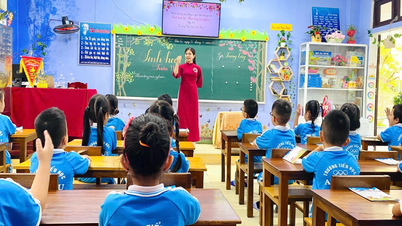


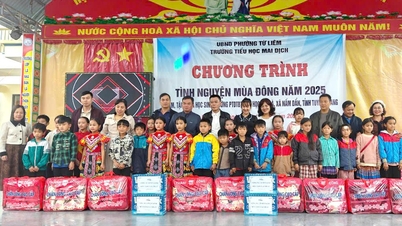

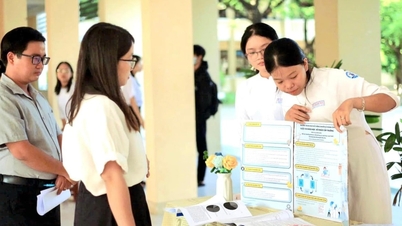

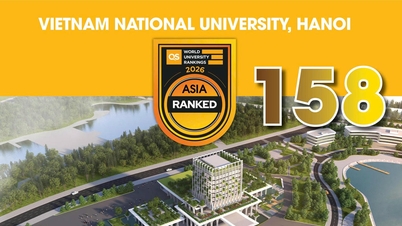

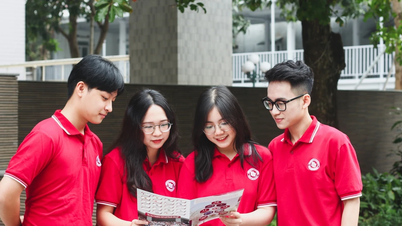

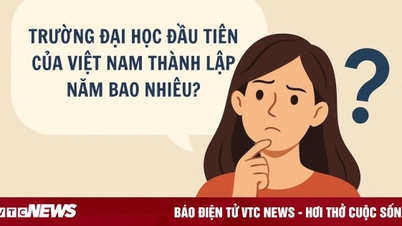
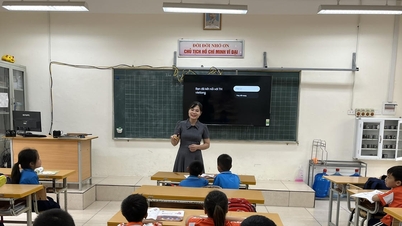

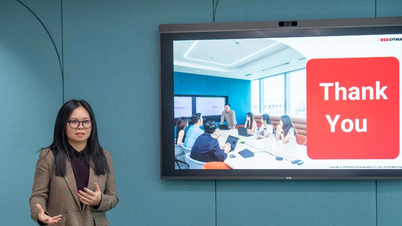

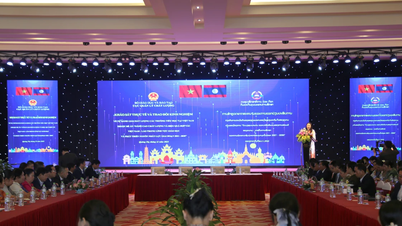
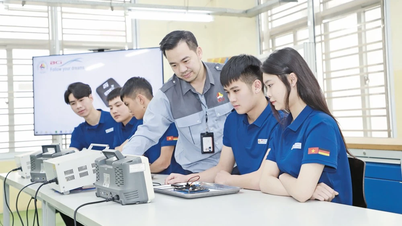




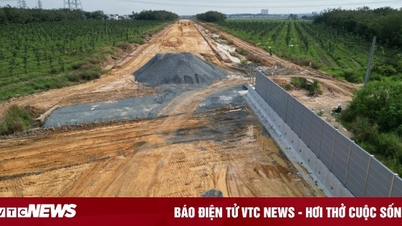
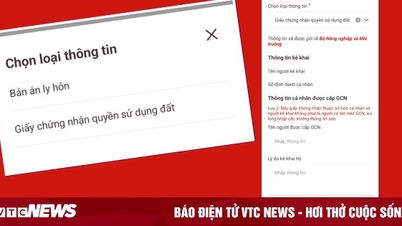
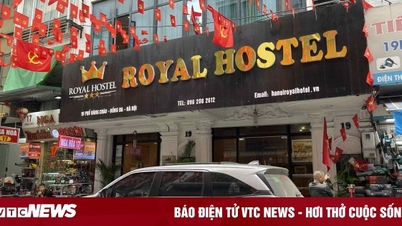

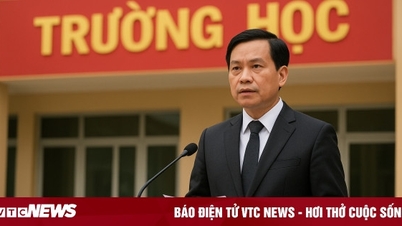
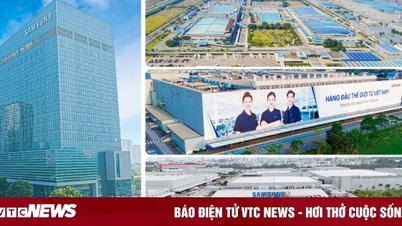





























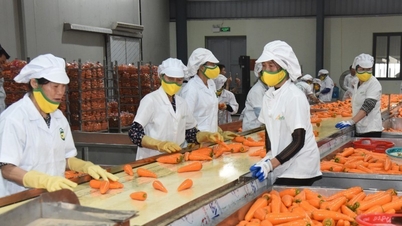










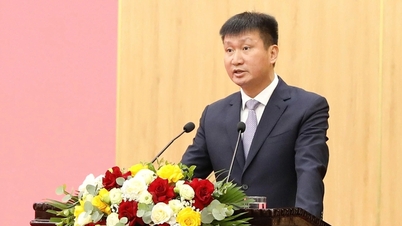


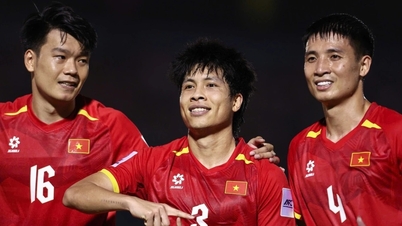
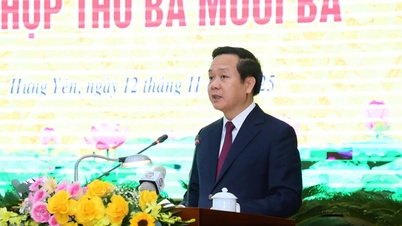




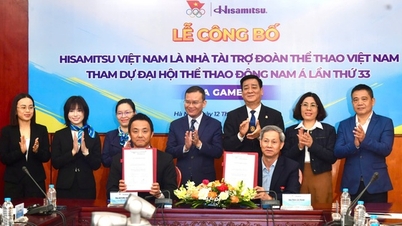
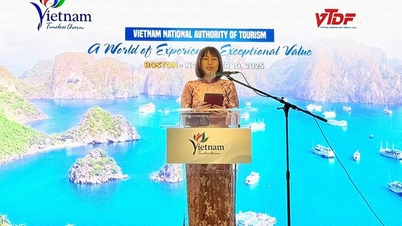



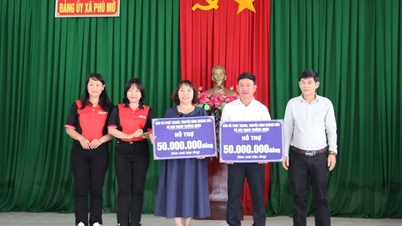
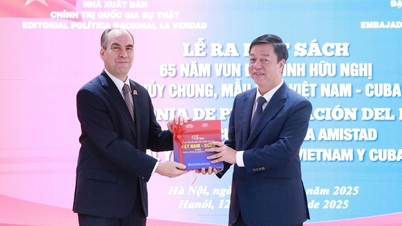


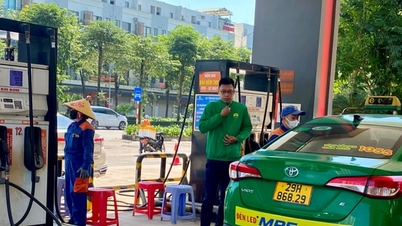

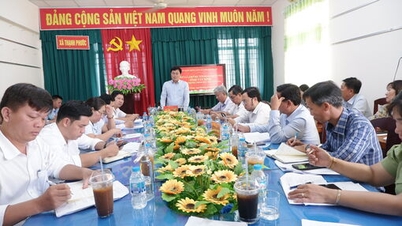






![Dong Nai OCOP transition: [Article 3] Linking tourism with OCOP product consumption](https://vphoto.vietnam.vn/thumb/402x226/vietnam/resource/IMAGE/2025/11/10/1762739199309_1324-2740-7_n-162543_981.jpeg)








Comment (0)